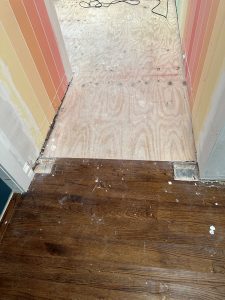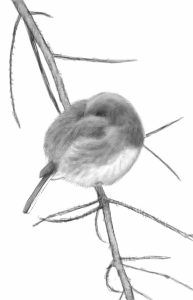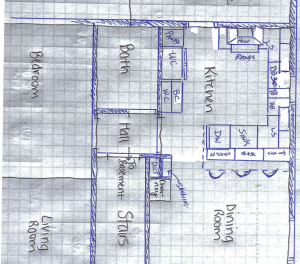
Heating, ventilation, and air conditioning (HVAC) units are among the most important systems in your home. They are responsible for heating and cooling your home, keeping it humidity-free, improving air quality, and preventing pipes from freezing in winter.
You can’t always predict when your heating and cooling systems will break down. But when they do, it can quickly become an expensive project. The experts at Today’s Homeowner have researched for you, so you know how much it will cost to replace your furnace, air conditioner, or other HVAC systems.
We use RS Means, a to-the-trade estimate system commonly used by contractors, and get bids from top HVAC contractors, so you get the most accurate HVAC installation cost data possible.
HVAC Installation
In general, you can expect to pay between $5,540 to $10,980 per HVAC unit, installation costs, and removal of your old unit.

Furnace Replacement
In general, you can expect to pay between $4,000 and $7,000, including installation, old furnace removal, and labor.

Heat Pump Installation
In general, you can expect to pay between $3,000 and $35,000, but most homeowners spend between $5,800 and $7,500.
How Much Does It Cost To Install An HVAC System?
HVAC installation costs mostly depends on the type of system you install. The least expensive HVAC systems, including window air conditioners, can cost you as little as $470, but the most expensive geothermal pumps can cost up to $36,530.
You can expect to pay between $5,540 to $10,980 per HVAC unit. This price includes the system, installation costs, and removal of your old HVAC unit.
| Low | Average | High |
| $470 | $5,540–$10,980 | $36,530 |
How Do Costs Differ by HVAC System Type?
An HVAC system is a system for heating, cooling, and ventilating. Most HVAC systems consist of two main systems: heating and cooling. However, some bundled HVAC systems serve both heating and cooling. See the table and sections below to learn what costs to expect for each type of HVAC system.
Cooling Systems
Cooling and air conditioning systems are responsible for keeping your home comfortable and cool in the summertime. Central air conditioning units are the most expensive, whereas window air conditioners are the least expensive. Depending on your chosen air conditioning system, you can expect to pay between $470 and $5,965 for this HVAC installation.
| Cooling Systems | Cost Low | Cost High |
| Window Air Conditioner | $470 | $3,225 |
| Ductless Mini Split Air Conditioner | $2,285 | $5,825 |
| Central Air Conditioner | $3,080 | $5,965 |
| Self-Contained Packaged Air Conditioner | $6,400 | $7,510 |
- Central air conditioning: Central air conditioning is the most common type of AC system, and prices typically range between $3,080 to $5,965. However, some air conditioning brands can easily exceed this range and cost nearly $10,000 per unit. Central AC is often separate from the heating system. It draws warm air from your home into a condensing unit that compresses the air into a gas that cools your home after it passes through the evaporator coils.
- Ductless split air conditioning: Most ductless air conditioners cost between $2,285 and $5,825. This split-system AC unit doesn’t rely on ducts and vents to cool your home. Instead, each unit has an outdoor compressor and indoor evaporator designed to control the temperatures in individual rooms or smaller spaces.
- Self-contained packaged air conditioner: Similar to ductless systems, self-contained air conditioners have a condenser and evaporator in one unit that is centrally located in your apartment, mobile home, or condo. The systems tend to cost between $6,400 to $7,550.
- Window air conditioner: Window air conditioners are the cheapest option for home AC and can easily be installed without professional help. These air conditioning units are installed in your windows and often cost between $470 and $3,225.
Heating Systems
Heating systems keep your home warm during colder months. On average, heating systems cost between $1,800 and $13,020. Electric furnaces are often the cheapest to install, and boilers and oil furnaces are more expensive. The more energy efficient your furnace is, the more expensive it will cost up-front.
| Heating Systems | Cost Low | Cost High |
| Electric Furnace | $1,800 | $7,100 |
| Gas Furnace | $3,280 | $7,550 |
| Oil Furnace | $6,425 | $9,125 |
| Boiler | $7,345 | $13,020 |
- Boiler: Boilers heat your home with hot water. Connected to pipes and radiators throughout your home, boilers can be energy efficient and are quieter than furnaces. Boiler costs are typically between $7,345 and $13,020.
- Electric furnace: Electric furnaces use heating coils that are powered by electricity. These units have the cheapest up-front cost of our listed heating systems at just $1,800 to $7,100, but their operating costs are much higher.
- Natural gas furnace: This is the most common furnace recommended for U.S. homes. Gas furnaces push hot air through your vents and ducts once warmed in the heat exchanger. These furnaces cost between $3,280 and $7,550 on average.
- Oil furnace: The most expensive type of furnace, oil furnaces often cost between $6,425 and $9,125. Oil furnaces are often recommended when your home isn’t connected to natural gas. However, they are more expensive to run, resulting in higher energy costs.
Heat Pumps
Heat pumps are quickly becoming popular as the only all-in-one HVAC system. Functioning as both your air conditioning and heating systems, these HVAC units fulfill your heating and cooling needs. But because they are two systems in one, they are often the most expensive to install, with unit prices ranging from $3,585 to $36,530.
| Heat Pumps | Cost Low | Cost High |
| Air Source Heat Pump | $3,585 | $7,890 |
| Dual Fuel Heat Pump | $4,630 | $8,530 |
| Gas Fired Heat Pump | $4,830 | $9,030 |
| Geothermal Heat Pump | $13,530 | $36,530 |
- Air-source heat pump: Air-source heat pumps are the most affordable, ranging from $3,585 to $7,890. These systems pull in air from the outside and either heat it or cool it before circulating it throughout your home.
- Dual fuel heat pump: The total cost for a dual fuel heat pump is about $4,630 to $8,530. This packaged system comprises traditional heating and cooling technology and best suits colder climates.
- Gas-fired heat pump: Popular for commercial use and homes larger than 4,000 square feet, gas-fired heat pumps range between $4,830 and $9,030. These heat pumps use natural gas to heat your home instead of electricity.
- Geothermal heat pump: Geothermal heat pumps, commonly known as ground-source heat pumps, are the most expensive option at $13,530 to $36,530. The high price is mainly due to the labor-intensive installation. These systems heat and cool your home by using temperatures in the ground. So, to install a geothermal heat pump, you’ll need to dig underground to install the piping.
The size of your home plays an important role in determining the size of your HVAC system. For heating systems, you typically need about 30 to 60 British Thermal Units (BTUs) per square foot; for air conditioning, about 20 BTUs per square foot. These size differences, as well as differences in system efficiency and brand, are why you see wide average cost ranges in the table below.
| Home Square Footage | Average Heating System Cost | Average Cooling System Cost |
| 1,000 square feet | $3,280–$4,275 | $1,550–$2,960 |
| 1,500 square feet | $3,500–$7,650 | $2,895–$3,305 |
| 2,000 square feet | $3,500–$7,700 | $3,670–$4,070 |
| 2,500 square feet | $4,000–$7,800 | $4,075–$4,485 |
| 3,000+ square feet | $4,600–$8,100 | $5,025–$5,435 |
Which Factors Impact HVAC Installation Cost Estimates?
Several factors will determine the total cost of your HVAC installation project. The size of your home and energy-efficiency rating are the most important factors, but other factors can also affect HVAC costs, namely:
- Climate
- Ductwork
- Energy efficiency rating
- System size
- System type
Climate
Where you live plays a major role in the HVAC system you need. Living in colder regions means you will need more BTUs per square foot to heat your home effectively. Because BTUs directly impact HVAC system size, homes that need larger furnaces will pay more for a new one. Smaller heating systems for 1,000-square-foot homes cost $3,280 to $4,275 on average, but you can pay up to $8,000 for a furnace that can heat your 3,000-square-foot home.
For furnaces, you can expect the following BTUs per square foot:
- Region 1: 35 BTU per square foot
- Region 2: 40 BTU per square foot
- Region 3: 45 BTU per square foot
- Region 4: 50 BTU per square foot
- Region 5: 60 BTU per square foot
Here’s a look at U.S. regions by climate:
Ductwork
If you need new ductwork, the total cost of your HVAC installation can increase significantly. On average, air duct replacement costs between $1,500 to $5,000. For HVAC repairs or upgrading to a more efficient system, ductwork may be less, at $500 and $1,000. But if you are adding a ventilation system to a home that previously didn’t have one, the cost can easily jump to $15,000 or more.
Energy Efficiency Rating
For air conditioning systems, the seasonal energy efficiency ratio (SEER rating) reflects how efficient it is. The required SEER rating for AC systems is 14 to 15, depending on the region, and these systems often cost between $3,500 and $5,800. But if you want some of the most efficient 20 to 24 SEER air conditioners, you might pay $8,500 or more. Keep in mind that some air conditioning systems may qualify for the Federal HVAC Tax Credit if they have specific SEER ratings.
Today’s Homeowner Tips
A high-efficiency HVAC system is your best investment if you want to save money on your energy bills. However, these lower monthly energy costs come at a higher up-front cost. However, remember that paying a few extra thousand dollars for these upgrades pays itself back in no time.
The annual fuel utilization efficiency (AFUE) defines a furnace’s efficiency. The minimum AFUE you should consider is 80%, but the most energy-efficient systems got up to 99%. An 80% AFUE furnace costs about $4,500, but the same size unit can cost $6,500 for a 96% AFUE furnace.
System Size
Larger homes require larger HVAC systems because these homes need more capacity to push more air through the ventilation system to heat and cool the home. However, the larger the size of the unit, the more expensive it will be. For example, a 1.5-ton air conditioner that will cool a 1,000-square-foot home will cost around $2,960. But a 4-ton AC system designed for 2,500-square-foot homes might cost $4,485.
| Air Conditioner Size | Home Square Footage | Air Conditioner Cost |
| 1.5 Ton | 1,000 square feet | $2,960 |
| 2 Ton | 1,200 square feet | $3,090 |
| 2.5 Ton | 1,500 square feet | $3,305 |
| 3 Ton | 1,800 square feet | $3,700 |
| 3.5 Ton | 2,000 square feet | $4,070 |
| 4 Ton | 2,500 square feet | $4,485 |
| 5 Ton | 3,000 square feet | $5,435 |
Find HVAC Cost Estimates In Your State
What Is an HVAC System?
HVAC stands for heating, ventilation, and air conditioning and describes the systems responsible for regulating the temperature in your home. As you saw above, there are several options for heating and cooling your home. However, each system has the same purpose: to draw in the fresh air and use a mechanism to heat or cool it to the temperature set by the thermostat.
You can also add special products, such as an air filtration system or a humidifier, to further improve air quality and home comfort.
Air Conditioning Systems
The main purpose of an air conditioner is to cool the air in your home. Air conditioners cool your home by drawing in air, forcing it through evaporator coils, and using a blower to push the air through an air handler and into the rest of your home. Air conditioners are filled with refrigerant, which helps the system pull heat out of the air and cool it down.
Furnaces
Furnaces (find out the cost of furnace replacement) are the most common type of heating system. This HVAC system uses a heat exchanger to heat the air in your home. First, the combustion chamber is heated. Then the cold air is forced into the heat exchanger, heated to the desired temperature, and blown into the ventilation system.
Heat Pumps
Heat pumps are packaged systems that can heat and cool the air in your home. To cool the air in your home, the heat pump draws in the warmer air in your home and pushes it outside. To heat your home, the heat pump draws in cold air from outside, forces it over the colder refrigerant that heats the coils, pulls the cold air over the heated coils, and pushes the warm air into your home.
Professional vs. DIY HVAC Installation
HVAC installation is complex, so it’s best to leave this home improvement project to certified HVAC professionals. You can easily perform maintenance tasks like changing filters or cleaning your vents, but trained technicians do installations and major repairs best.
Doing HVAC Installations Yourself
Unlike other home projects, HVAC installation should be left to the professionals. Because installing most HVAC equipment requires knowledge of ventilation, plumbing, and electrical systems, we discourage homeowners from doing it themselves. There are several benefits to having an HVAC professional install or replace your existing system. Not only will it ensure that your system is installed correctly, but also:
- Ensures you have the right size system installed
- Gets you access to a workmanship warranty
- Makes it more likely that you will qualify for repairs under your manufacturer’s warranty
- Ensures that your system is installed safely
- Creates a relationship with professionals for when you need HVAC repairs
Hiring a Professional for HVAC Installation
To hire a local HVAC contractor to install your new HVAC system, follow these easy steps:
- Find local experts near you: Use the button below to be connected to a top HVAC company in your area.
- Get a quote from a few options: Once you’ve contacted local HVAC professionals, gather at least two — if not more quotes — for your project. You’ll often find that HVAC replacement costs differ from one company to another.
- Consult them about their recommendations: As you get your free quotes, consider which types of HVAC systems your technician recommends. Pay special attention to the efficiency ratings, brand, and system size.
- Choose a quote: Pick the HVAC contractor that provides the best quote for your home’s needs and budget.
- Install your HVAC system: Your HVAC provider will set up a time to remove the existing system and install your new HVAC equipment.
Our Final Thoughts About HVAC Installation Pricing And Associated Costs
The average HVAC system costs between $5,540 to $10,980, but can be as low as $470 or more than $36,000 depending on the system you install. You can find an HVAC system to work within your budget, but the total cost of your HVAC system depends on your home square footage, unit size, efficiency rating, and where you live. If you have any more questions, read below or check out our general HVAC FAQ page.
FAQs About Costs Related to HVAC Installations
How much is an HVAC system for a 2000-square-foot house?
For a 2,000-square-foot house, you will spend, on average, $3,500 to $7,700 for a heating system and $3,670 to $4,070 for a cooling system. Your price will depend on the HVAC system’s efficiency, brand, labor costs, and system size.
Why is replacing HVAC so expensive?
An HVAC system can be expensive to replace because of the many important components and parts. An HVAC unit costs between $5,000 and $10,000, and labor costs between $50 and $150 per hour. If you need new ductwork or a new thermostat, you can easily add between $1,500 and $5,000.
What can you do to reduce the cost of your HVAC system?
To save money on your HVAC installation, you should utilize local rebates, claim tax credits towards your annual deductions, and discuss discounts with your HVAC contractor. Additionally, some HVAC companies offer discounts if you install your AC unit and furnace simultaneously. More than discounts, you’ll save money on labor costs because the crew will only have to come to your home once.
What does HVAC installation include?
HVAC installation includes the HVAC unit, the cost of labor, demolition of the old unit, removal and disposal of the old unit, permits, ductwork, and other components if your HVAC technician deems it necessary. All this information will be provided as a quote or estimate.






